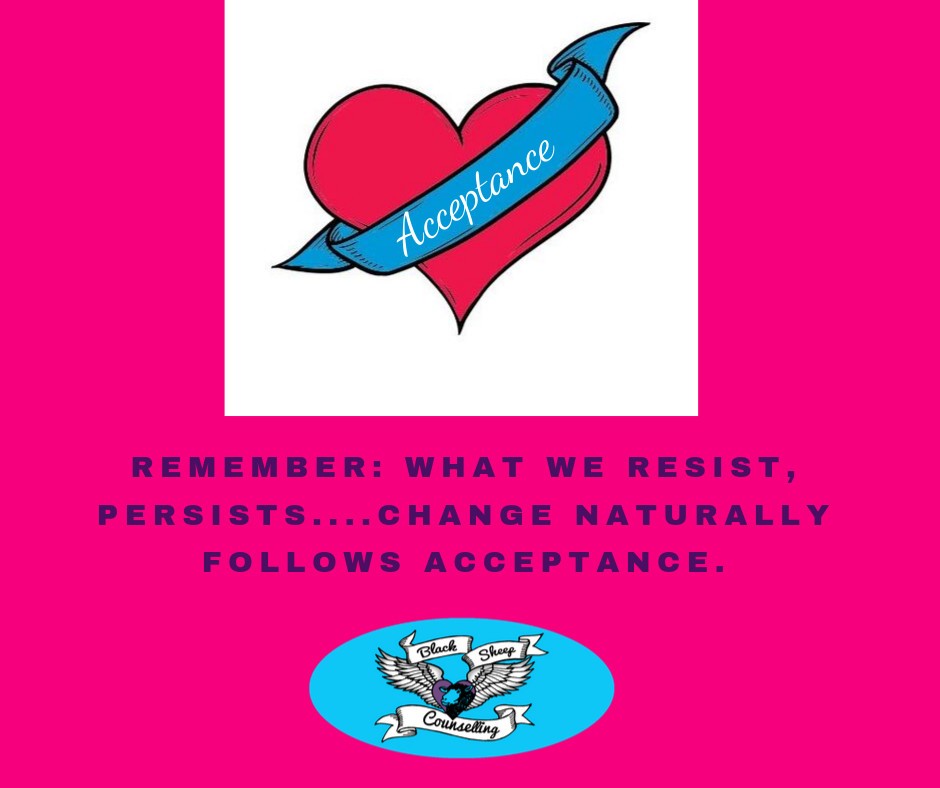ANXIETY: Turning towards pain

What if the next time you felt anxious, you chose to accept it?
We give a whole lot of energy towards the things we fear. Research shows that anxiety decreases the more one accepts and increases the less one accepts it.
Sound difficult to “accept” something that causes you distress?
Try this: rather than think of yourself as an “anxious person”, accept that at times anxiety is present for you. Say to yourself, “just scared, just scared” whenever you feel anxious.
Avoid: “I’m practicing acceptance in order to reduce anxiety”. That is not acceptance.
Acceptance means to embrace whatever arises within us, moment to moment, without judgment or willing ourselves to feel something other than what we are feeling in that moment.
In life we experience a wide array of emotions. This is part of our shared humanity. Sometimes we experience feelings that produce a sense of “ick”. Sometimes we experience feelings that are pleasant. We naturally want to continue the pleasant feelings and stop the icky ones. But if we set out with that goal, it doesn’t work. We need to pay attention to the “ick”. Try to label it (“that feeling of tightness in my stomach is anxiety”). This identification and validation of what is happening for you will not make the anxiety bigger (oftentimes a fear that puts us in resistance-mode). Instead, it will help you move through the anxiety and it will pass quicker. This is what mindfulness is. This can be tough stuff to try to adopt. Not many people are masters at this, so try not to judge your process. Try to gradually soften your resistance to anxiety. Recognize that this process in not linear – some days we drop back and feel as though we will never get *this*… and some days we leap forward and feel like we are rocking this acceptance thing.
*For those times when you are struggling particularly hard, try to practice self-compassion. The word COMPASSION has Latin roots. Com means with and pati means suffer: suffer with. Another way to conceptualize compassion is “Love in Action”. Send that love inward – this shifts the “mental work” (worry, fear, anxiety, rumination) into “heart work”: heart work is healing work.


